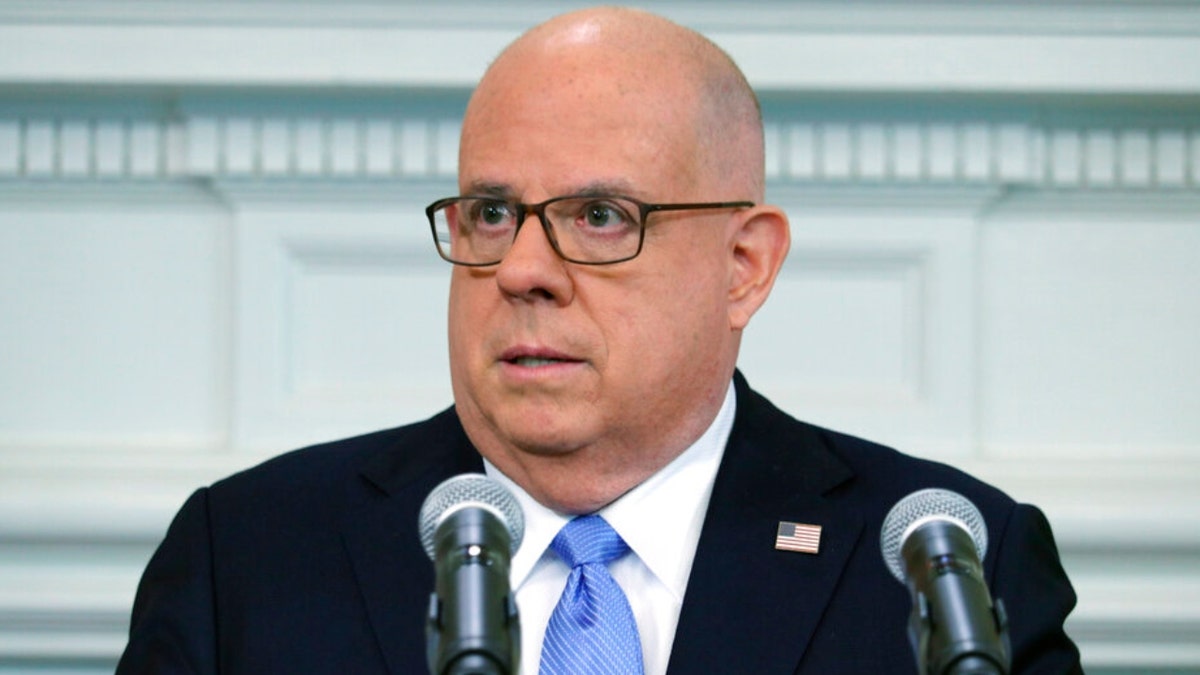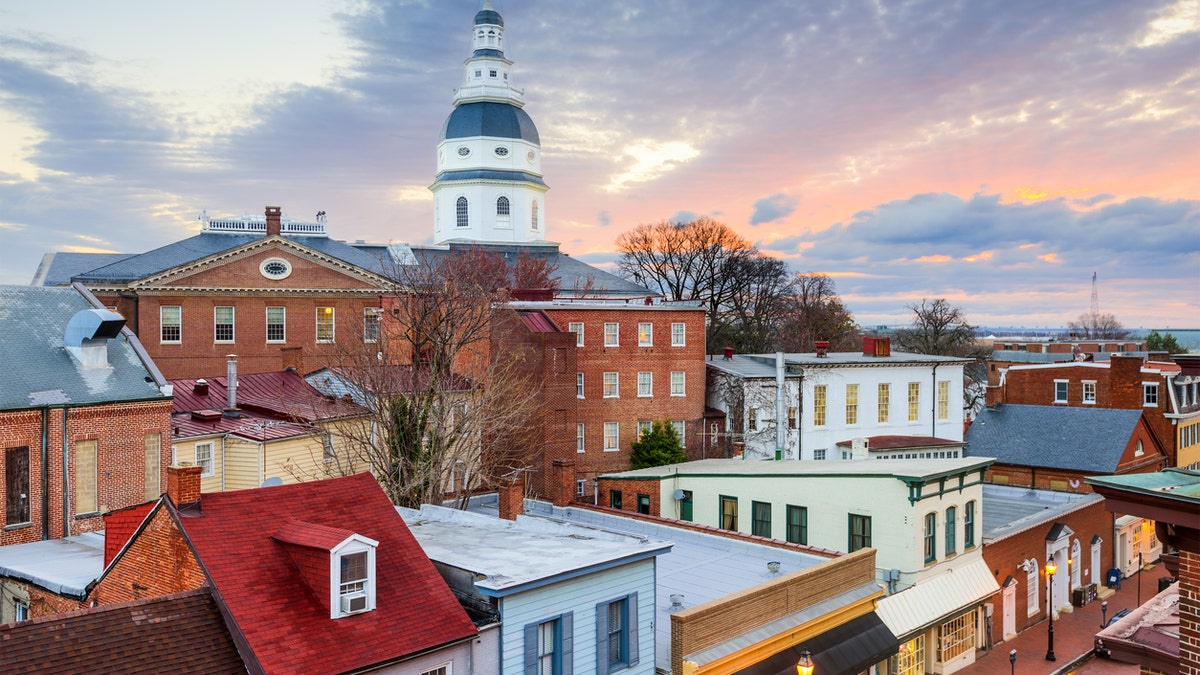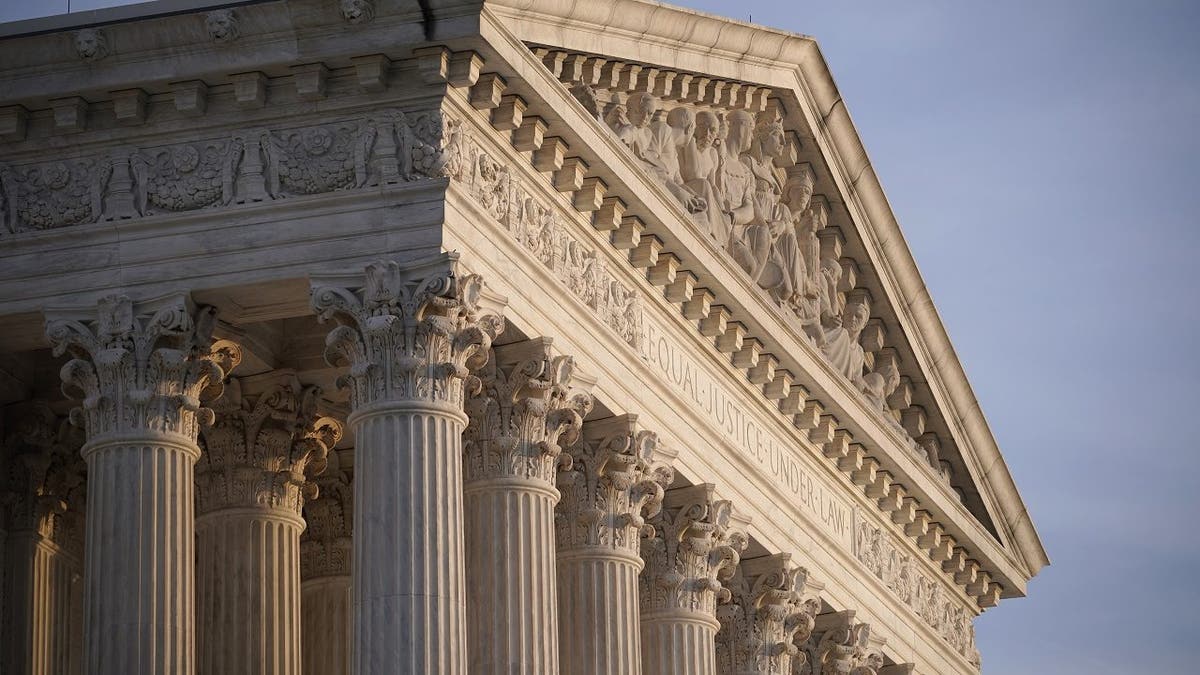HHS Secretary Becerra refuses to admit partial-birth abortions are illegal in House testimony
Health and Human Services Secretary Xavier Becerra refused to admit that partial-birth abortions are illegal in an exchange with Rep. Jim Banks, R-Ind., April 6, 2022.
The Maryland state House and Senate overrode Republican Gov. Larry Hogan's veto on Saturday, passing a bill to expand abortion ahead of the U.S. Supreme Court's highly-anticipated decision in Dobbs v. Jackson Women's Health Organization, which observers expect will overturn or restrict the 1973 Roe v. Wade decision.
The bill, H.B. 937, establishes the "Abortion Care Clinical Training Program" in the Maryland Department of Health "to ensure that there are a sufficient number of health professionals to provide abortion care," forces the governor to include $3.5 million in the annual budget to fund the program, and alters the law to enable professionals besides medical doctors to perform abortions.
"Thank you so much to my House colleagues for voting to override the Governor's veto on my legislation to protect our public health officials from undue political influence," Democratic House Delegate Joseline A. Pena-Melnyk wrote on Twitter. "It is imperative that we guide our policy by science."

Maryland Gov. Larry Hogan announced he will not run for U.S. Senate during a news conference on Tuesday, Feb. 8, 2022 in Annapolis, Md. (AP Photo/Brian Witte, File)
The two houses of the Maryland General Assembly passed the bill last month, with Democrats supporting it and Republicans opposing it.
Gov. Hogan vetoed the bill Friday, saying that H.B. 937 "risks lowering the high standard of reproductive health care services received by women in Maryland. These procedures are complex, and can, and often do, result in significant medical complications that require the attention of a licensed physician."
"The only impact that this bill would have on women's reproductive rights would be to set back standards for women's health care and safety," Hogan added.
71% OF AMERICANS SUPPORT ABORTION RESTRICTIONS: POLL
The Maryland House overrode the veto, 90-46, and the Senate did the same, 29-15, along party lines, on Saturday.

Annapolis, Maryland, USA skyline and State House. (iStock Photo)
Del. Adriana Kelley, a Democrat and the lead sponsor of the bill, told CBS News that H.B. 937 "is making sure that people have access to care, particularly people of color, particularly low-income people, particularly rural people. We know that physician-only restrictions exacerbate health inequalities, and we are trying to reduce health inequalities in the state of Maryland with this bill."
Del. Haven Shoemaker, the Republican House minority whip, described the bill as "the most radical expansion of abortion in Maryland's history in a state that already has some of the most liberal abortion laws in the country."
States with Democratic legislatures have passed laws codifying abortion in case Roe gets overturned. Last week, Gov. Jared Polis, D-Colo., signed a law creating a "fundamental right" to abortion and denying any right for the unborn. In 2019, Gov. Andrew Cuomo, D-N.Y., signed a law codifying abortion rights and explicitly removing protections from unborn infants.

FILE - In this Nov. 5, 2020, file photo the Supreme Court is seen in Washington. (AP Photo/J. Scott Applewhite, File) (AP Photo/J. Scott Applewhite, FileY)
Meanwhile, states with Republican legislatures have passed laws restricting abortion, with Texas and Idaho passing laws allowing private citizens to file civil suits against individuals who aid or abet abortions after a fetal heartbeat is detected, at about 6 weeks of pregnancy.
CLICK HERE TO GET THE FOX NEWS APP
Overturning Roe would likely supercharge the issue at the state level. The Guttmacher Institute, a pro-abortion organization, has predicted that 26 states are likely to either ban abortion or severely limit access, should the Court overturn Roe.
While many polls suggest Americans support Roe, in-depth polling reveals a more complicated picture. When asked about their opinion on abortion during specific periods of pregnancy and other situations, 71% of Americans say they support restricting abortion to the first three months of pregnancy (22%), or in other limited circumstances such as rape and incest (28%), to save the life of the mother (9%) or not at all (12%). Only 17% of Americans said abortion should be available during an entire pregnancy and 12% said it should be restricted to the first six months.













































